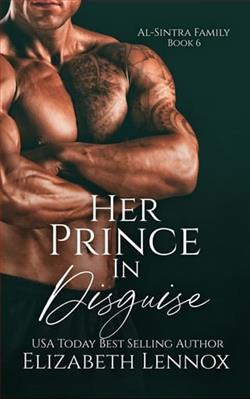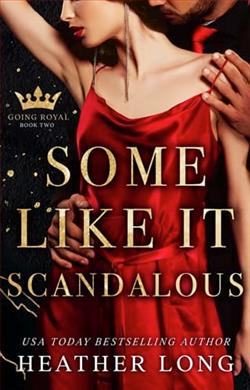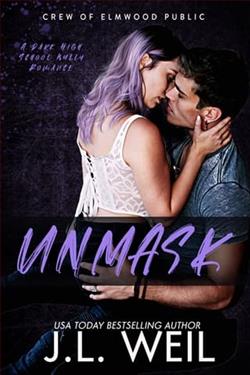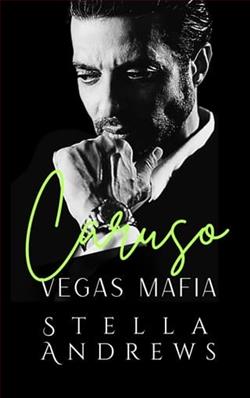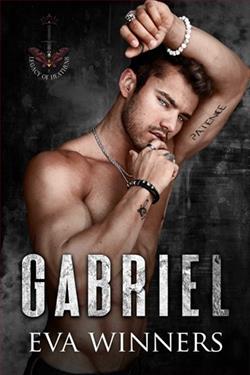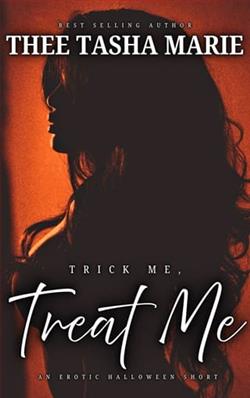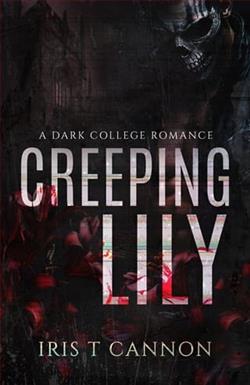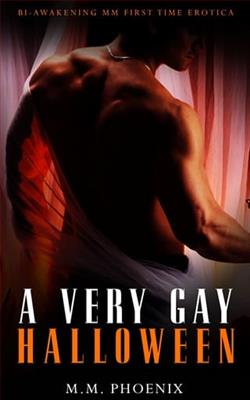Page 59 of The Maleficent Faerie
With a surge of muscle I throw Reehan to the ground, forcefully enough that he wheezes and stays put for several seconds. When I stalk away, Kyan approaches and helps the blond knight to his feet.
“Training is over.” I pick up my leather cuirass and put it on, using magic to fasten the openings at the back, which seal around my wing joints. “Get something to eat, finish any chores you’ve neglected, and pack your bags. We leave within the hour.”
23
I don’t know who I am.
The thought circles in my mind over and over as I ride with the Void King and his Edge-Knights. Malec has chosen to fly overhead since we left Hellevan Chapel, so I’ve been riding alone. I’m not bound in any way, but the Edge-Knights keep my horse in the center of the group. There’s no chance of breaking free, even if I wanted to.
I don’t know what I want. I don’t know who I am.
My life has consisted of training, guarding, and keeping watch—spattered with moments of violence. I didn’t regret those kills, because I wasn’t killing for myself—I did it for Dawn.
Except it wasn’t for her, in the end. It was all for me.
My life, deemed more precious than the lives of others.
My parents’ pride, valued above the welfare of an entire realm.
I have no magic anymore. No wings, no Fae heritage, no five-hundred-year life span. But I do have strength and skills. At least the Three Faeries taught me not to depend on magic for protection.
Maybe I should be glad for my years of excellent education at Dawn’s side, for the countless memories of books read together, of swims in palace pools, of pranks played on servants and evenings spent giggling over my latest amorous conquest.
But it’s all soured now, and I think that’s the worst part—not the anger or the betrayal, or the peril of my true identity—but the fact that every good memory is now colored differently. None of it has the same meaning.
My head lying in Elsamel’s lap when I was sick, her fingers brushing through my hair. Genla’s look of grim approval when I staggered away from a fight, bruised but victorious. Sayrin’s patient instruction in the use of my magic. Every remembrance is tinged with pain and lies.
Each encounter I had with the King and Queen is soiled, too. Every dinner at which I stood guard—I, the rightful Princess, just steps away from my parents’ fake daughter. The time when the King came to watch me train. The time the Queen joined Dawn and me for our sessions with the seamstress. They so rarely spent time with Dawn—with me. I don’t understand their reasons for any of it.
I don’t know who I am.
When we pause for the noon meal, I sit listlessly on a rock, watching a stream gurgle over dark pebbles. Some of the Chapel attendants packed us food—flat bread folded in half, stuffed with meat and cheese and sauce, kept chilled within an enchanted basket. My wrap hangs between my limp fingers. It probably tastes good, but I can’t bring myself to try it.
The horses are drinking and eating, and so are the men. They give me space, whether out of courtesy or by some directive of Malec’s, I’m not sure. But I’m grateful to be left alone for a little while. IthinkI’m grateful, anyway. Being alone with my thoughts feels necessary right now, but also dangerous.
I don’t notice Malec standing in the shadow of the trees until a raven soars across the stream and alights on his shoulder. He murmurs affectionately to the bird before letting it fly away. Then he walks over, folds his arms, and props his hip against a higher part of the rock I’m sitting on.
He’s in layered black-leather armor today, and his wings are folded up tight, pinned to his back. The sunlight catches on his horns as he tilts his head. “You’re not eating.”
I look down at the wrap in my hand. “I suppose not.”
“You should eat something. Keep your strength up.”
“Most captors would prefer weak prisoners.”
“You’re much more than a prisoner.”
“Is that so?” I look up at him, too listless for anything but a faint spark of anger. “Who am I then? Because I don’t know anymore.”
“You are who you’ve always been. Certain externals and futures have changed, but you remain yourself.”
“I don’t think so. I feel different, inside. I’m solid, you know—not fractured anymore.” I crook my fingers over my heart, digging my nails into the fabric of my tunic. “But it still hurts so badly that I want to—cut it out.”
He answers in a voice of shadow and silk, of sorrow and certainty. “I know the feeling.”
My throat tightens, and the inside of my nose stings with oncoming tears.
“In such moments,” he says gently, “it might help to think of the little things that are still the same. They can often be the most important.”








